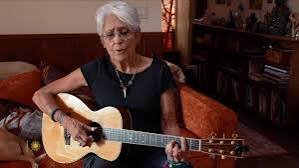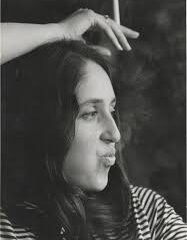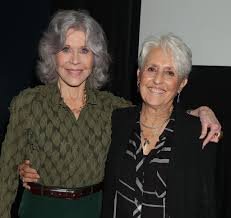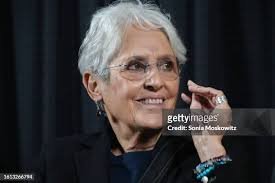Director Offers a Deep Dive into Joan Baez’s Life and Legacy with New Documentary.
In a recent cinematic unveiling, acclaimed filmmaker Rebecca Miller presents “Joan Baez: A Personal Look,” a groundbreaking documentary that offers an intimate portrait of the iconic folk singer and social activist. The film, which premiered at the Sundance Film Festival this week, explores Baez’s multifaceted persona and storied career, blending historical insights with personal anecdotes.
Joan Baez, a defining figure of the 1960s folk music scene, is renowned not only for her powerful voice but also for her unyielding commitment to social justice. Miller’s documentary, however, aims to go beyond the surface, delving into the personal and professional complexities that have shaped Baez’s public and private life.
The documentary stands out for its unique approach, combining a mix of archival footage, personal interviews, and candid reflections from Baez herself. Miller, known for her thought-provoking storytelling in films like “The Ballad of Jack and Rose” and “Maggie’s Plan,” brings a nuanced perspective to Baez’s narrative. By focusing on both the iconic and the lesser-known aspects of Baez’s life, the film provides a comprehensive look at the artist’s evolution over the decades.
“Joan Baez: A Personal Look” opens with a reflective exploration of Baez’s early years, tracing her roots from a tumultuous upbringing in a politically active family to her rise as a voice of the civil rights and anti-war movements. The documentary underscores her profound influence during the 1960s, capturing the essence of her participation in pivotal moments, including the March on Washington and her protest against the Vietnam War.
A notable aspect of the film is its emphasis on Baez’s internal struggles and triumphs. Interviews with close friends, collaborators, and family members offer an unfiltered view of the singer’s journey. These personal accounts reveal the toll that fame, activism, and personal relationships have taken on Baez, painting a picture of a woman who has continually grappled with her public persona versus her private self.
One particularly striking segment of the documentary is its exploration of Baez’s impact on subsequent generations of musicians and activists. Through candid conversations with contemporary artists and social leaders, Miller highlights how Baez’s legacy has transcended her own era, influencing movements and voices long after her peak in the limelight.
The film also addresses the quieter, often overlooked aspects of Baez’s life, such as her struggles with self-doubt and her attempts to balance her activist pursuits with her personal desires. This focus on vulnerability humanizes Baez, offering viewers a more rounded understanding of the complexities behind her public image.
Miller’s direction is complemented by a score that interweaves Baez’s music throughout the film, enhancing the emotional depth of the narrative. The soundtrack not only includes some of her most celebrated performances but also features rare recordings that shed light on her artistic evolution.
“Joan Baez: A Personal Look” is not just a tribute but a critical examination of a life dedicated to music and activism. Miller’s work invites audiences to reflect on the enduring impact of Baez’s contributions while acknowledging the personal sacrifices that accompanied her public achievements.
As the documentary continues to tour festivals and prepare for its general release, it has already garnered praise for its honest portrayal and rich storytelling. Reviewers have lauded Miller for her ability to present Baez in “all her complexity,” capturing both her monumental achievements and her personal struggles with equal empathy.
In a world increasingly fixated on surface-level narratives, “Joan Baez: A Personal Look” stands out as a reminder of the deeper stories behind public figures. It offers a compelling exploration of Joan Baez’s life, celebrating her as a trailblazer while acknowledging the human experiences that have defined her remarkable journey.

 Blog2 months ago
Blog2 months ago
 Blog3 months ago
Blog3 months ago
 Blog3 months ago
Blog3 months ago
 Blog2 months ago
Blog2 months ago
 Blog7 months ago
Blog7 months ago
 Blog1 month ago
Blog1 month ago
 Blog2 months ago
Blog2 months ago
 Blog2 months ago
Blog2 months ago












